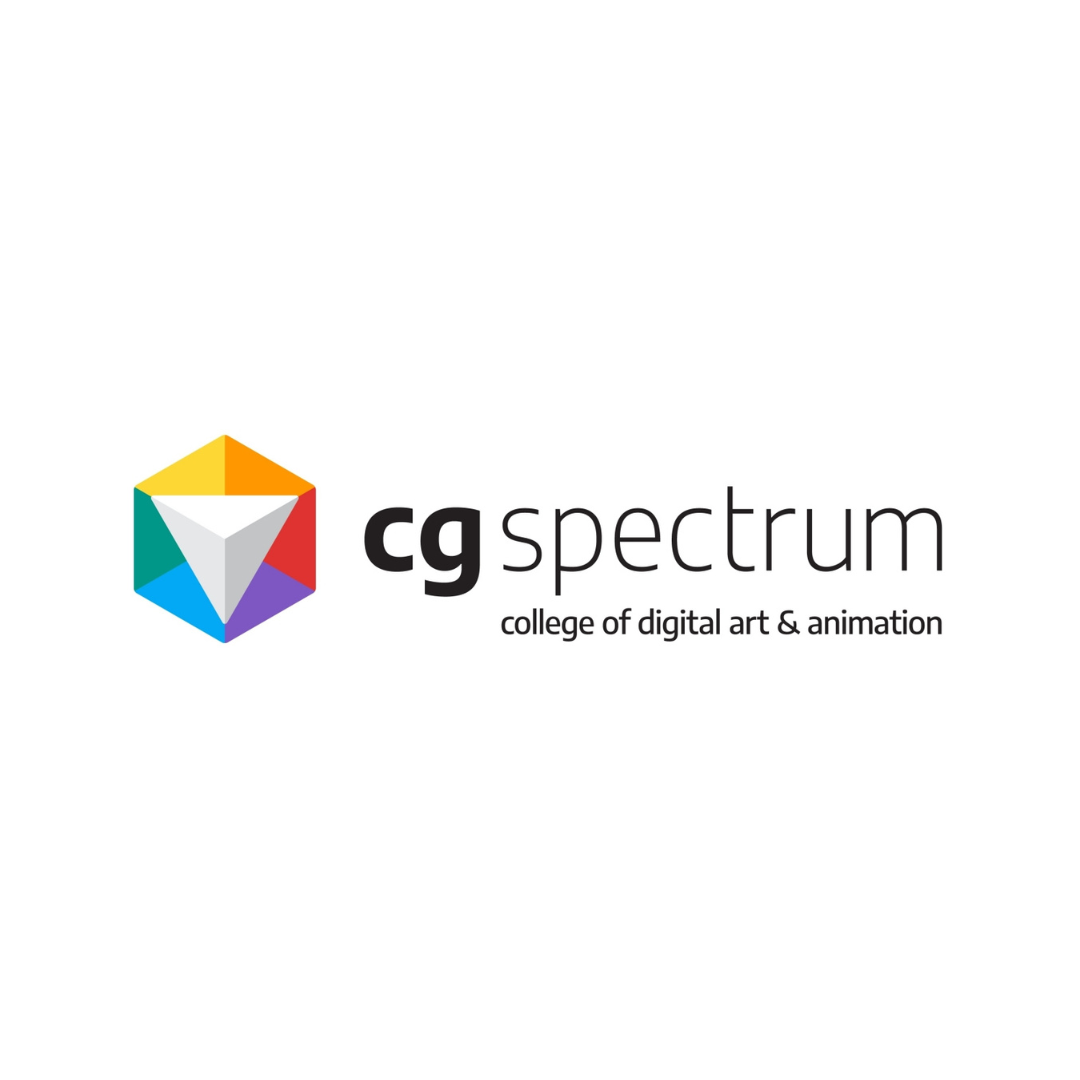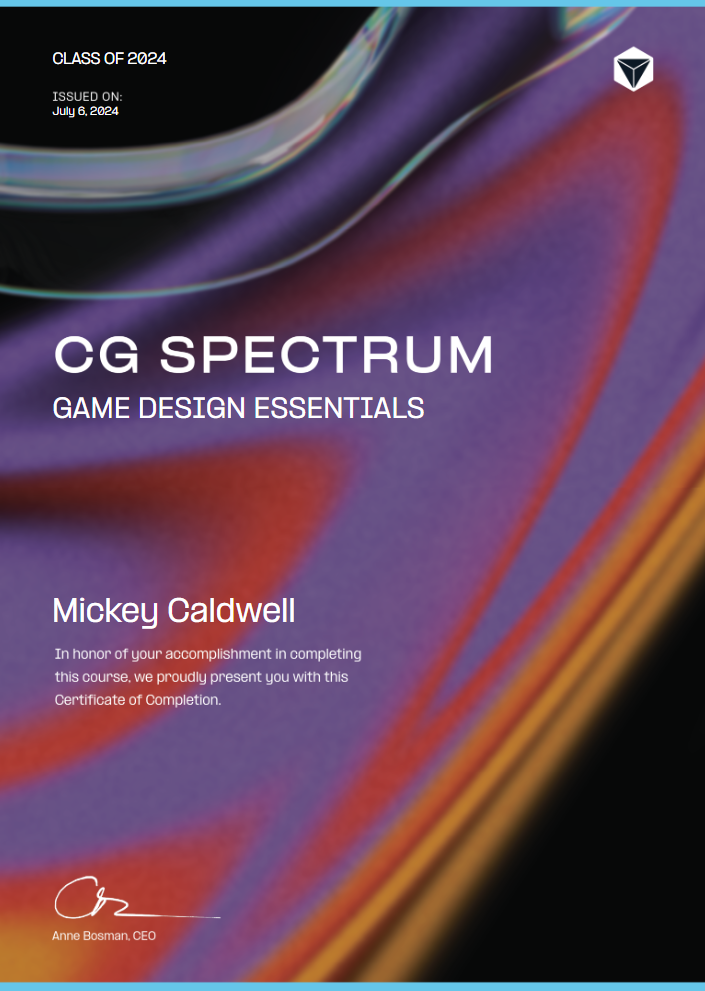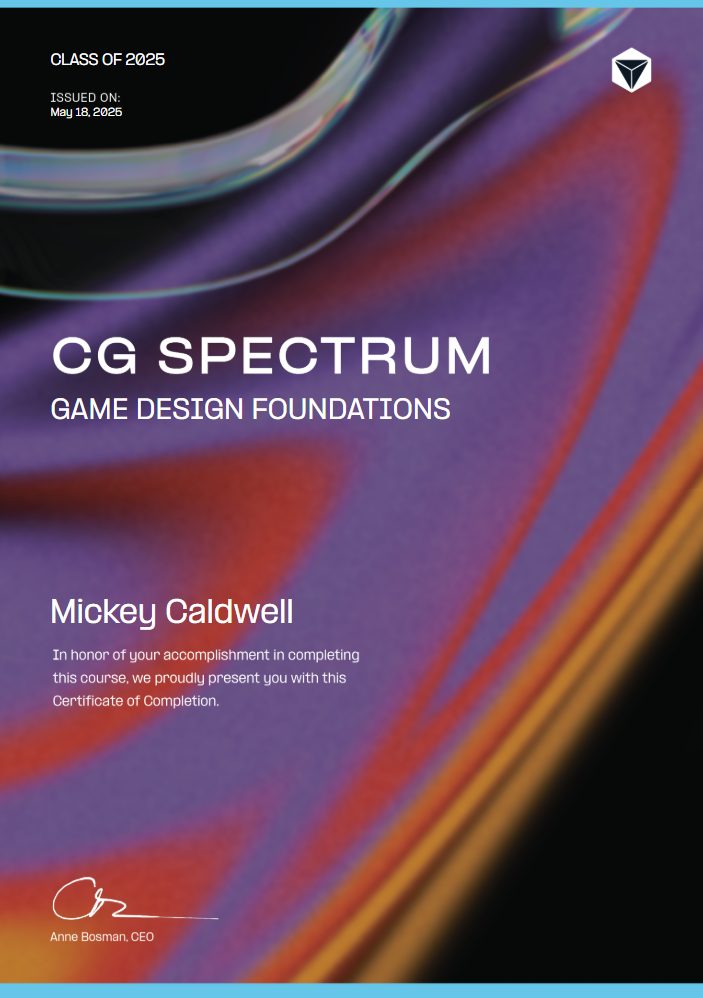CG Spectrum
Founded in 2011, CG Spectrum was created to provide high-quality, career-focused, and personalized training in game development, VFX, and animation. Backed by expert mentors actively working in top AAA studios around the world, our courses are designed to reflect the demands of the industry.
Recognized globally as one of the leading online schools for digital arts, CG Spectrum has earned a reputation for producing job-ready graduates with high employability rates. Our specialized short courses focus on practical, hands-on learning, empowering students to build confidence, develop in-demand skills, and launch successful careers in creative tech.
Additional information can be found on the CG Spectrum site: CG Spectrum
My Studies
As a video game design student, I received training in both the creative and technical aspects of game development, preparing me to design and build engaging, polished gaming experiences from the ground up.
Throughout my studies, I explored the full game development pipeline from ideation and concept development to prototyping, playtesting, and final iteration. I learned how to design core gameplay loops, create compelling mechanics, and structure levels to support exploration, challenge, and player agency.
Key areas of focus included:
Game Mechanics Design: Understanding player behavior, designing systems that are fun and rewarding, and balancing gameplay to maintain challenge and flow.
Level Design: Creating engaging spaces that encourage exploration, storytelling, and progression. I practiced blocking out levels, designing encounters, and ensuring pacing aligns with player intent.
Narrative Design: Integrating story and gameplay through environmental storytelling, dialogue systems, branching narratives, and player choice.
Game Engines & Tools: Gained hands-on experience using an industry-standard engine such as Unreal Engine 5, along with basic scripting (Blueprints) to implement functionality and interactivity.
Prototyping & Iteration: Built multiple game prototypes, using playtesting and feedback loops to refine game mechanics, improve usability, and polish player experience..
In addition to technical skills, my education also emphasized game theory, player psychology, and market awareness, helping me understand why certain mechanics succeed, how to design for specific audiences, and what makes a game stand out in today’s market.
By the end of my program, I’ve built a portfolio of a solo project that showcases my design thinking, creativity, technical proficiency, and passion for creating memorable player experiences.



